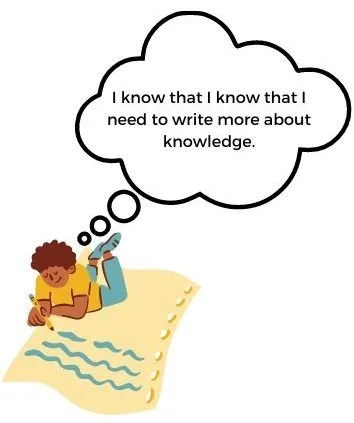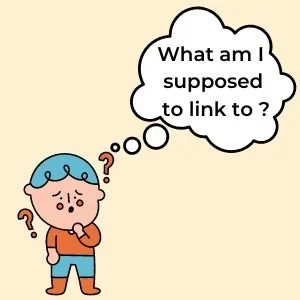3 biggest mistakes on the ToK Essay
OK, this blog is not actually the 3 "biggest" mistakes. It is actually the 3 'most frequent' mistakes' made on the ToK Essay, but that's not quite so catchy. It doesn't fit into a title quite so well. So I used an informal colloquialism, a practice which could be part of one of the 3 'most frequent mistakes'. Onto the mistakes:
Mistake 1. Insufficient focus on Knowledge / Too much RLS / not enough LTQ
The ToK Essay requires a "sustained focus on the title and an effective link to areas of knowledge". Translated this means that students need to write about knowledge, concepts pertaining to knowledge, knowledge issues, knowledge claims, Areas of Knowledge, The Knowledge Scope, Methods of Knowledge construction, perspectives on knowledge, and the ethics of knowledge. Do you see the common thread here ?
Far too often I read essays that contain great details about the examples (aka "real life situations", or "real world contexts") but far too little about knowledge. These ToK essays get very few marks. I have read amazing explanations of the development of Molecular and Atomic Theories, the movement from Realist to Impressionist Art, The role of The American Novel in the literary canon of the 20th Century etc etc. All of these essays scored low marks because they focussed on the real life examples rather than on knowledge itself.
As a rough guide I recommend that the ToK Essay is 80% about the knowledge issues arising from the Prescribed Title, and about 20% real world examples used to demonstrate the knowledge arguments. I ask my students to take their drafts and highlight the knowledge content in one colour, and the 'real life' examples in another colour. This gives a good visual representation of the balance of knowledge to real examples.
LTQ: Link to the Question.
The most frequent annotation that I make to draft ToK Essays is "LTQ", meaning "link to the question". This refers to the mistake of making a knowledge point, or using an example, and not directly linking it to the question. Students need to explicitly tell the examiner how that point, or example, answers the question. The easiest way to do this is to use the relevant words from the question in the answer, usually towards the end of the paragraph.
Some examples of how to LTQ.
Let's look at an example from an imaginary Prescribed Title "Is old knowledge better than new knowledge ?":
Excerpt A
"When considering the role of new knowledge in AoK Natural Sciences we could compare modern surgery techniques with 18th century surgery techniques. We now know that an antiseptic environment, and making use of anaesthetic, not only makes the surgery more comfortable for the patient, but also increases the success, and survival rate, of the surgery."
Excerpt B
"When considering the role of new knowledge in AoK Natural Sciences we could compare modern surgery techniques with 18th century surgery techniques. We now know that an antiseptic environment, and making use of anaesthetic, not only makes the surgery more comfortable for the patient, but also increases the success, and survival rate, of the surgery.This example demonstrates that new knowledge could be seen as a cumulative development of old knowledge in AoK Natural Sciences. As such this could support the claim that new knowledge is better than old knowledge in AoK Natural Sciences, if better is defined as fulfilling the purpose of knowledge construction."
In Excerpt A the student cites a real world example (surgery techniques) to examine a knowledge point, but does not directly link the example to the Prescribed Title. In Excerpt B the student cites the same example, and then explains how that example answers the question, and offers a little further development of the knowledge point (new knowledge could be said to be cumulative).
Mistake 2. Imbalanced, or incomplete ToK Essay.
Far too often I see ToK Essays which are either imbalanced, or unfortunately are incomplete. Most of the Prescribed Titles ask students to consider the prescribed title in 2 Areas of Knowledge. I often see essays in which one Area of Knowledge is fairly well explored, but there is only a cursory exploration of the second Area of Knowledge.
There is nothing explicit in the Assessment Instrument that says that the essay has to be balanced, nor that equal treatment should be given to both AoKs. However, the essay is assessed using an approach called "Global Impression Marking". The explicit instruction to examiners is that they are to make a "holistic judgement" of the essay. This means that they are looking at all elements of the essay together to determine a best fit in the marking scheme. If the exploration of the PT in one AoK is in the upper mark bands, but the other is in the lower mark bands they will be unable to judge the essay, holistically, as being in the upper marking bands.
If there is a significant difference in the quality of different elements of the essay examiners are asked to look again at the driving question (which for the essay is "Does the student provide a clear, coherent and critical exploration of the essay title?" (IB ToK Study guide, 2020)). This should help to guide the mark given. There is an explicit instruction to examiners that they should not use the assessment criteria as a tick box, which can be used to establish an average mark.
Which brings us to the obvious concern that an imbalance in the number of words written does not necessarily mean an imbalance in the quality of the ToK content. This is absolutely correct. The note of caution here is that with a limit of only 1600 words it is very hard to develop a holistically insightful and lucid essay if there are uneven treatments of the elements of the essay.
Balance in arguments.
The same mistake is also sometimes seen in the treatment of the arguments of the essay. Students may fully develop one argument, whilst the other is much abbreviated or abridged. This brings us to the question of what the appropriate structure of the essay should be. There is no single 'approved' structure, and no defined 'successful' structure. The correct structure for the essay is the one which will allow the student to develop a coherent and critical exploration of the title.
Students will often ask "should the claim be in one AoK, and the counterclaim in another AoK, or shall I do both claim and counterclaim in both AoKs ?" (of course, there is no requirement to use claim and counterclaim, but it is one method to develop arguments in the essay). In this instance it's important that there is no repetition of points in the essay, other than that students should use the structure which best helps them to answer the Prescribed Title.
Mistake 3. Lack of substance / evaluation / depth / research in ToK Essay.
Many essays lack depth, or substance in concept development. The knowledge points appear to be superficial, maybe even anecdotal. Such essays appear to suffer from a lack of planning, and research, by the student before writing. This can lead to the essay lacking nuance, coherence and analysis. The typical consequences of such essays are:
Absolutist or binary statements eg "Natural Sciences are objective, the Arts are subjective".
Knowledge Hierarchies. Eg "Science has more status than Art because it is more valuable"
Unsubstantiated Assertions. Eg "Maths is unbiased, but History is inevitably biased".
Unaddressed implied assumptions. Eg "Technology is popular because it makes life easier".
In order to write a lucid and insightful ToK Essay we need to spend time exploring the arguments and ideas. I would recommend reading the précis of some of the classical texts, or 'big thinkers', in the field. Research the range of perspectives relating to the concept or idea that you are discussing, develop a more holistic and nuanced understanding of the subject.
Some examples to show undeveloped claims.
Let's look at a typical example: Knowledge claim - Natural Sciences can be more objective than Human Sciences because Human Sciences are more open to human interpretation and biases.
Typically students argue this claim with very little evaluation, nor an examination of the underlying assumptions. Typically I see an orthodox positivist explanation of the claim. To develop a more holistic (evaluative) argument the student could consider any of the following:
1. Researcher bias in the Natural Sciences.
2. Biases inherent to the Scientific Method in the operationalisation of variables, sample selection, experimental design etc.
3. Confirmation bias in interpretation of results.
4. The salami slicing problem of scientific research publication / research funding pressures.
Further, the student could consider the epiphenomenal / ethnographic schools of Human Sciences. There could also be a consideration of Kuhn's Theory of Paradigm Shifts in the Natural Sciences.
I am not arguing that the student should include all of these evaluation points (after all, there are only 1600 words available). I am arguing that addressing one or two of the evaluation points makes a more nuanced essay, and allows for a more insightful examination of the claim.
The points above also apply to a lack of Implications of knowledge arguments in the essay (as required by the highest mark band). However, we will save a discussion on 'implications' for a later blog.
If you need any help with your essay then please see the help available at our student support page, check out the videos on our YouTube Channel, pick up my E-Book (The ToK Essay in 6 easy Steps), or get in touch with me at Daniel@ToKToday.com.
Daniel,
September 2022




